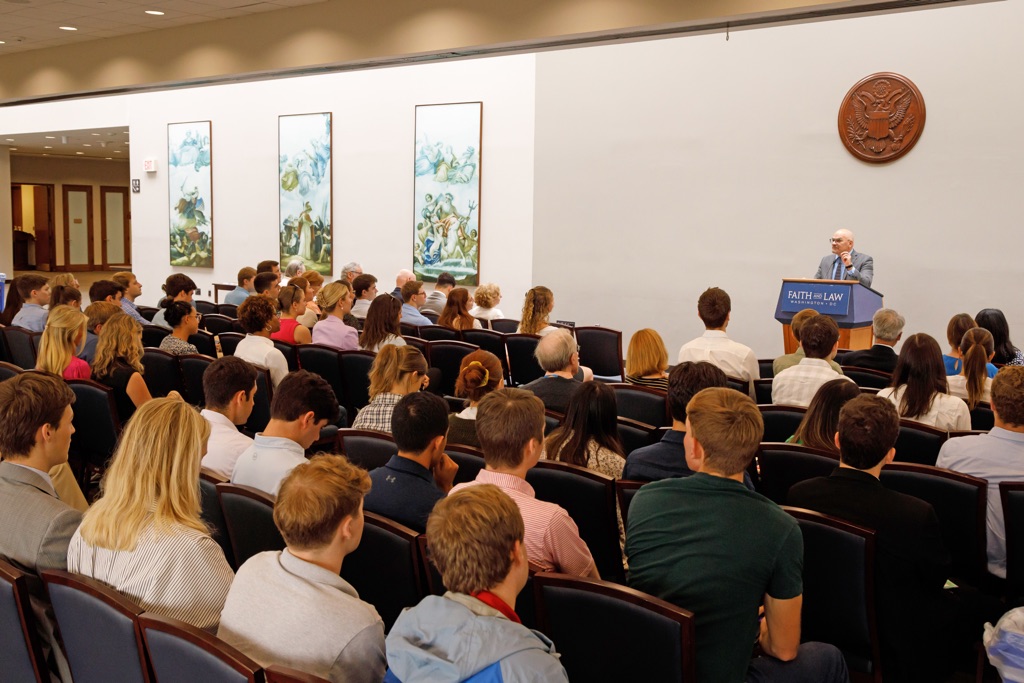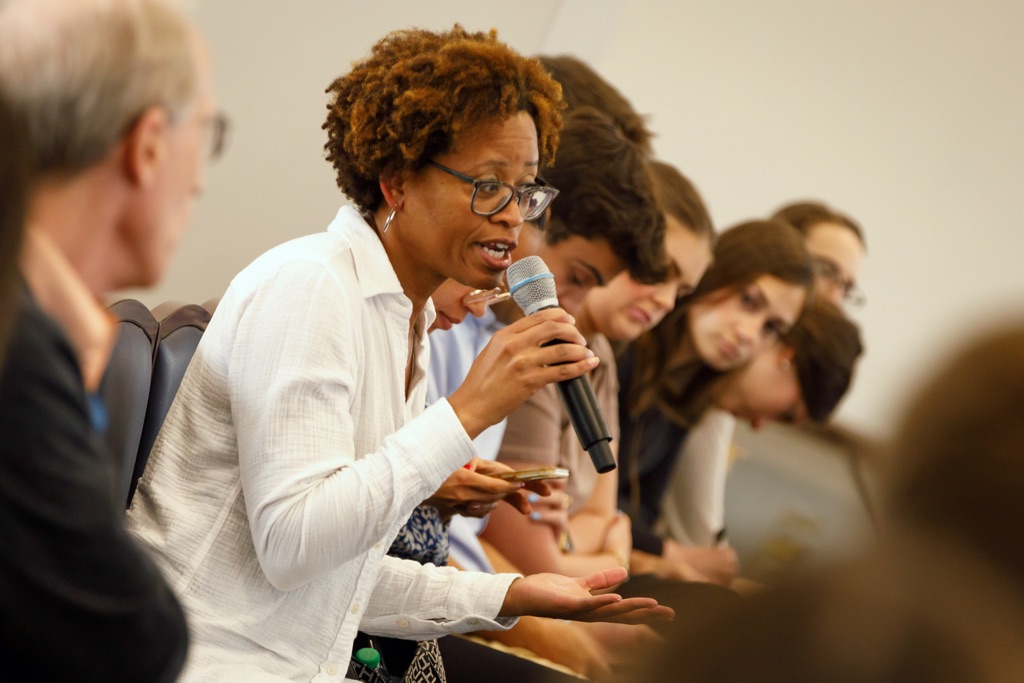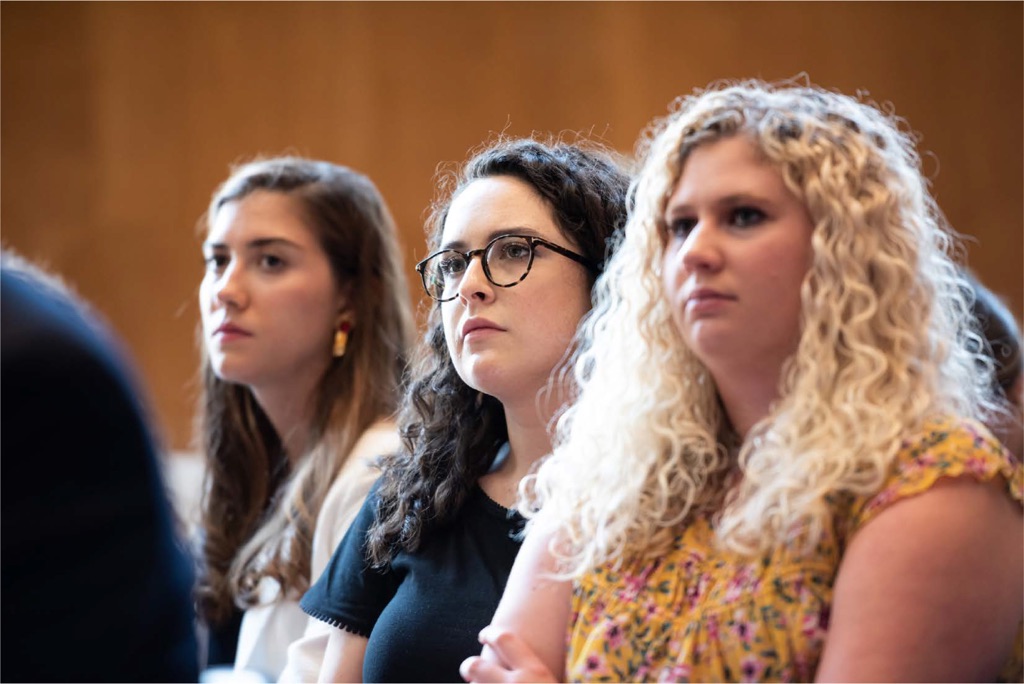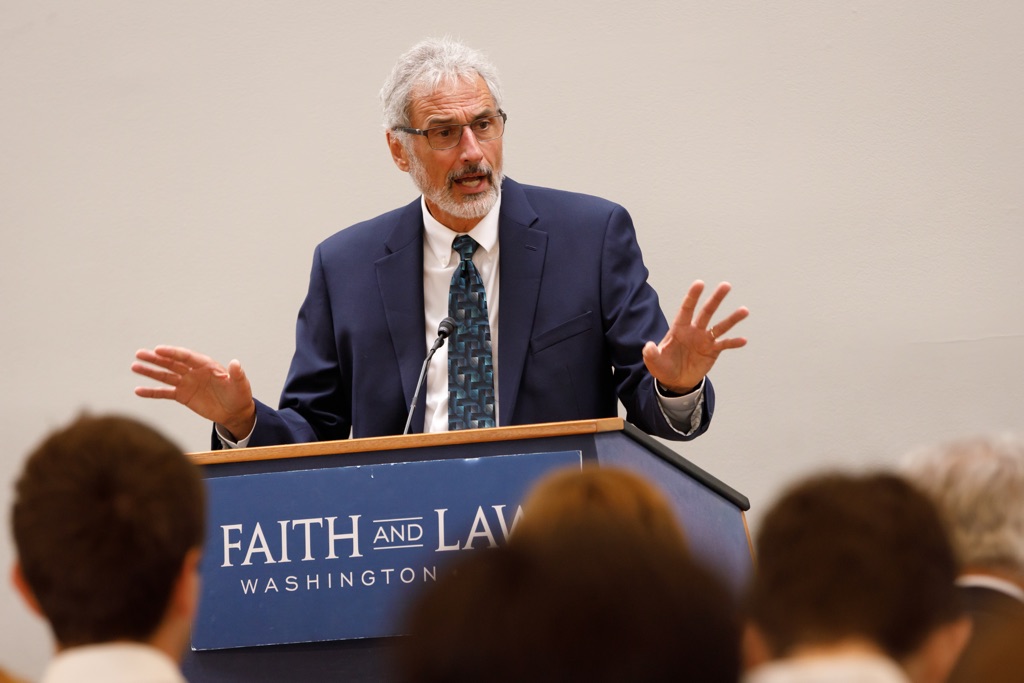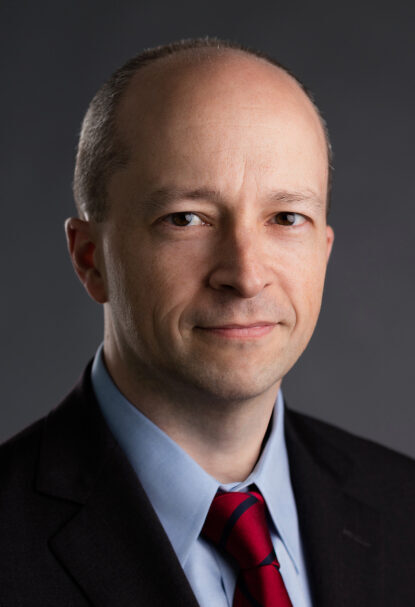Finding Unity – Constitutionally Speaking
Unity is a fraught word these days, especially on Capitol Hill. But what if unity is less about thinking alike (which is never going to happen!) and more about working together?
That was the hopeful chord struck by author and senior AEI scholar Yuval Levin at Faith and Law’s fall leadership conference. In a wide-ranging conversation with John Shelton, leader of Faith and Law’s Senate reading group, Levin laid out key themes from his new book, American Covenant: How the Constitution Unified Our Nation – and Could Again (Basic Books, 2024).
“In its own terms, the Constitution describes its purpose as forming ‘a more perfect union.’ [This means] it was designed “to help an inherently divided society – and always diverse society – to hold together and govern itself.”
“The idea of unity that is implicit in the Constitution,” said Levin, “is not an understanding of unity as thinking alike, but as acting together. To grasp this difference takes a classic understanding of politics as an arena for common action to address common needs and problems.”
Fair enough, but how to do it? Rather than seek a frictionless political environment, policymakers need to recover the mechanisms envisioned in the constitution, such as negotiation, bargaining and coalition building. “This is the work we’ve forgotten how to do in the 21st century. This is the central skill of American republicanism.”
Levin fielded questions about the Senate filibuster and electoral college, the primary system, the rise of administrative agencies, federalism and the separation of powers. In assessing what has “broken down,” Levin laid much of the blame with the legislative branch. “Congress has decided it doesn’t like its job, declining to make law that is detailed and formulated in a way that can be executed and adjudicated.”
Levin became a U.S. citizen at age 19. “From now on you have to think about America in terms of the first-person plural,” he recalled the judge saying at his naturalization ceremony. “That means that you have to talk about America in terms of us and we, not them and they.”
While the statement struck the young Levin as odd, “in retrospect, this was exactly what needed to be said, not just to new immigrants but to all of us. We have to find ways to think about our country in terms of we and us, and not they and them.”
“Constitutional unity is peace, but not quiet. It has nothing to do with kumbaya.”
Faith and Law is a non-profit ministry started by policy makers and for policy makers.

